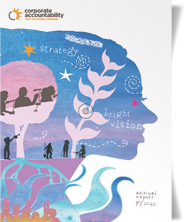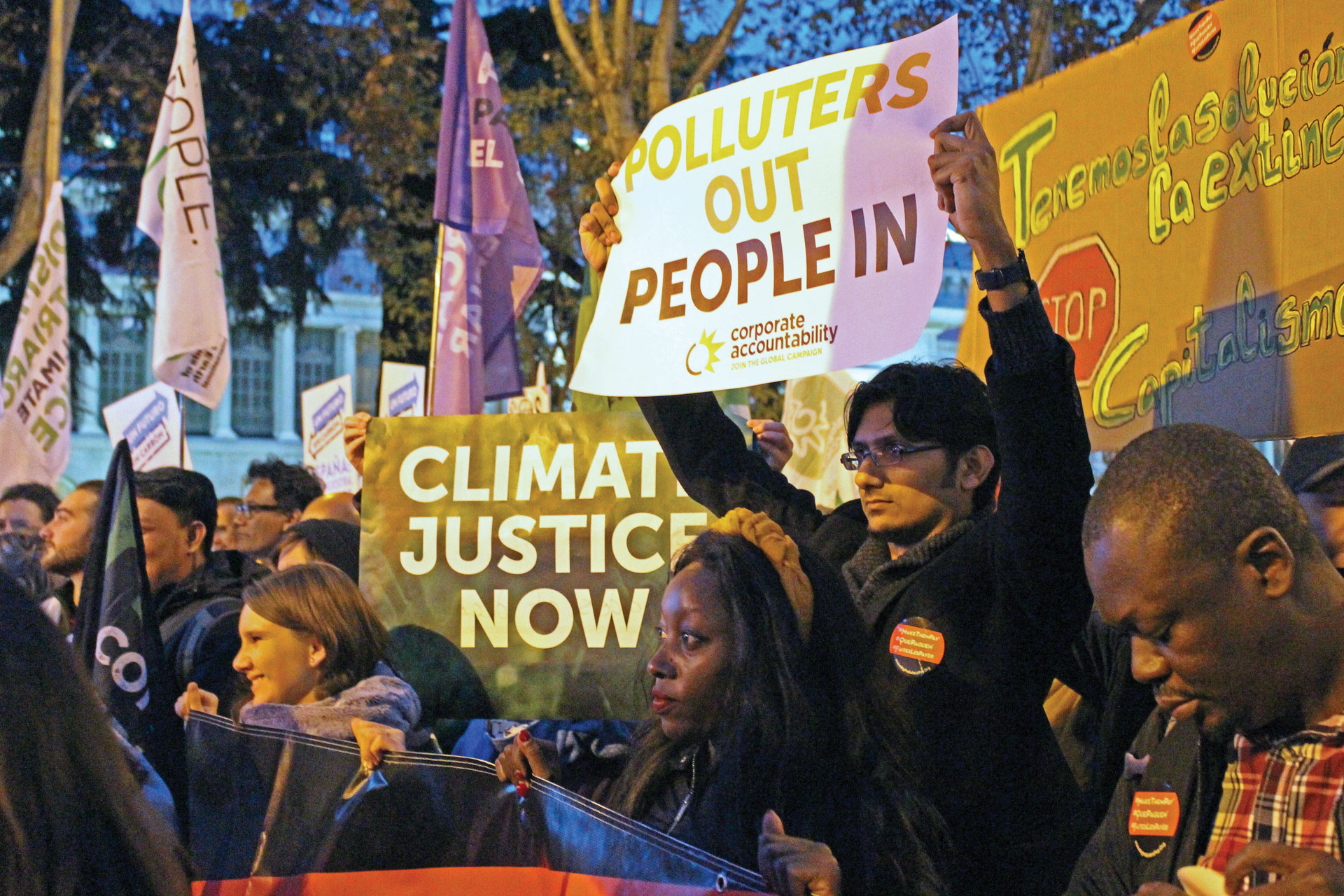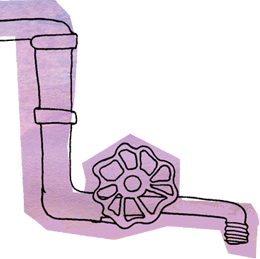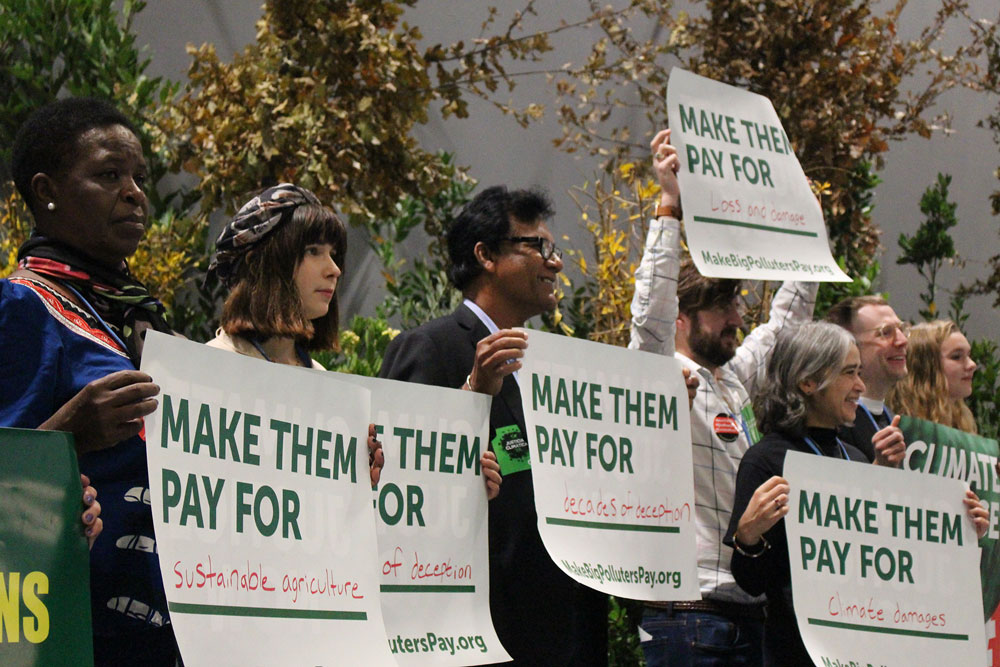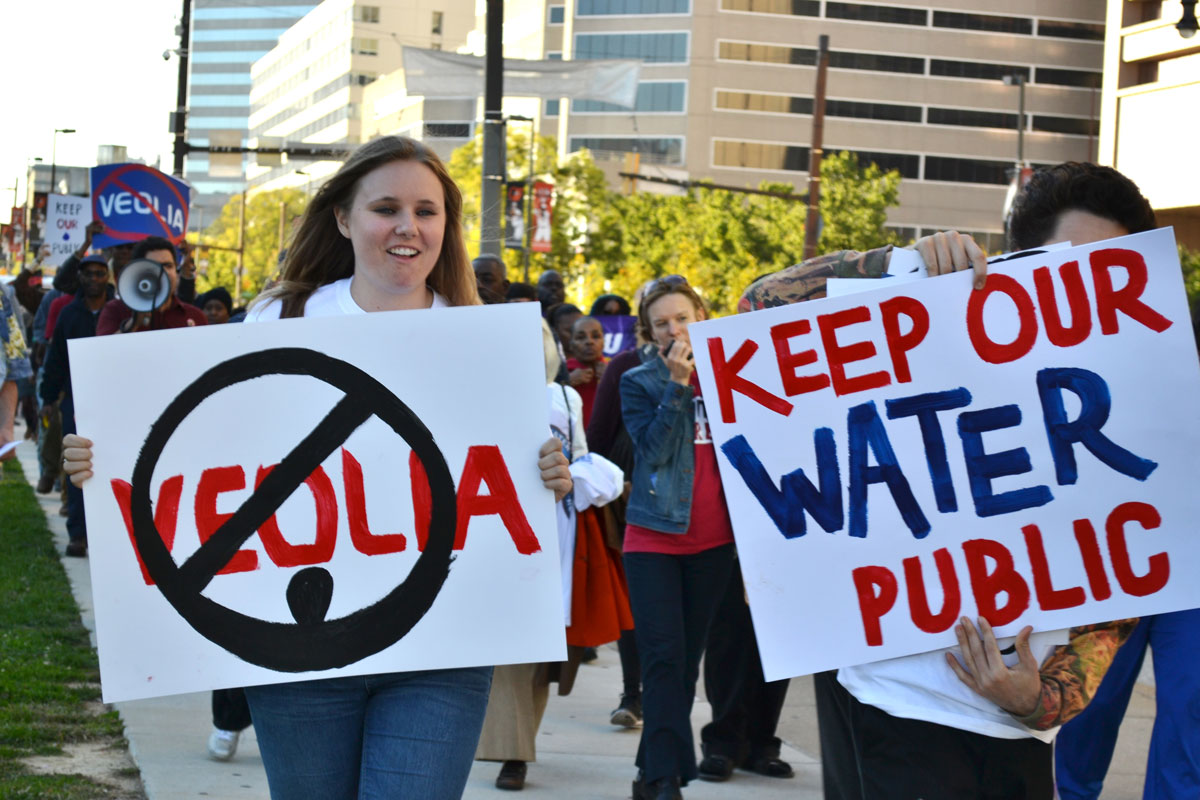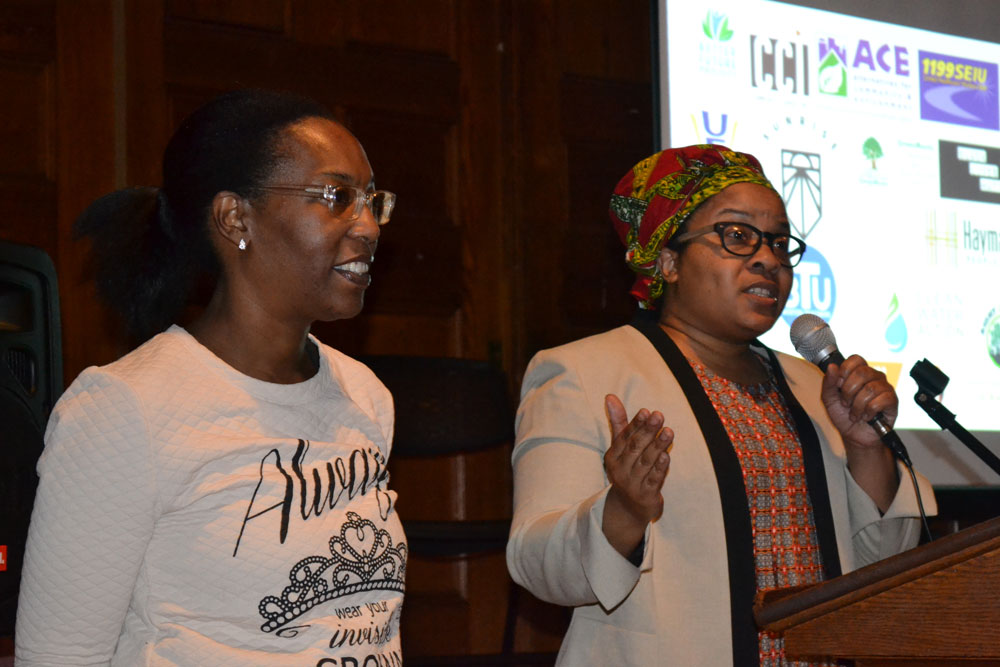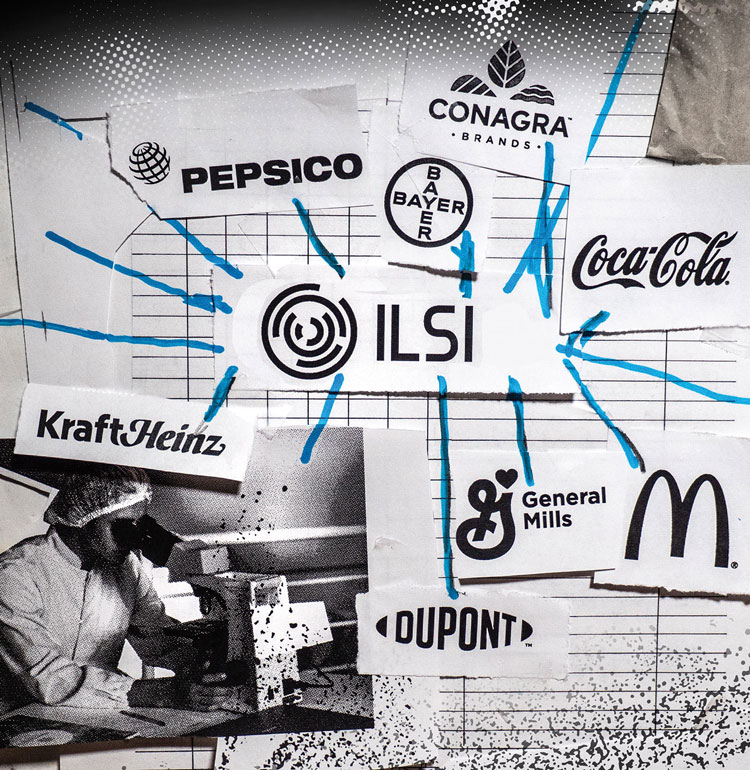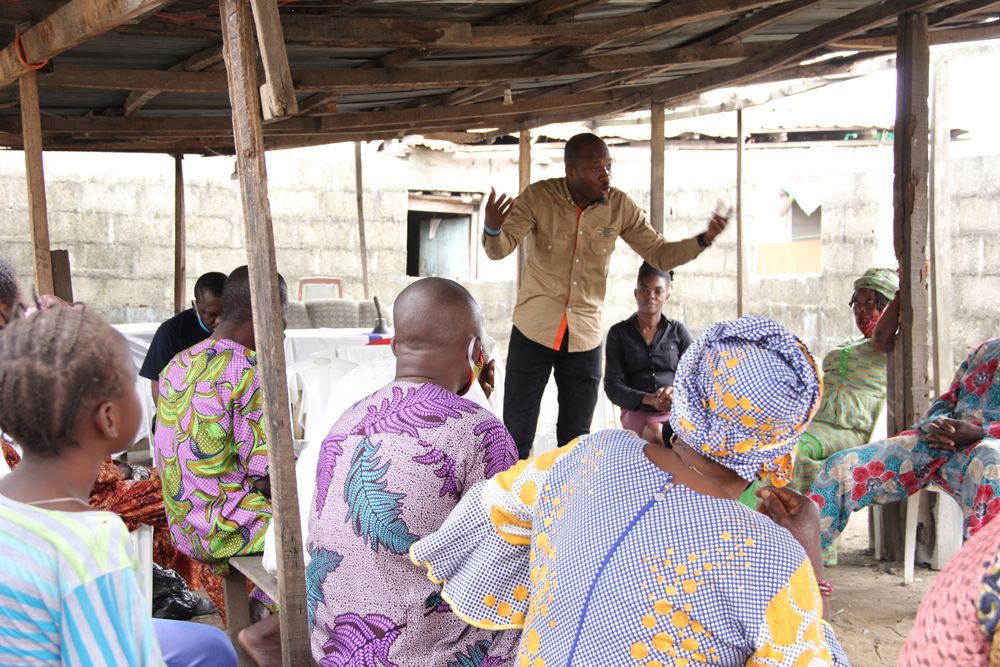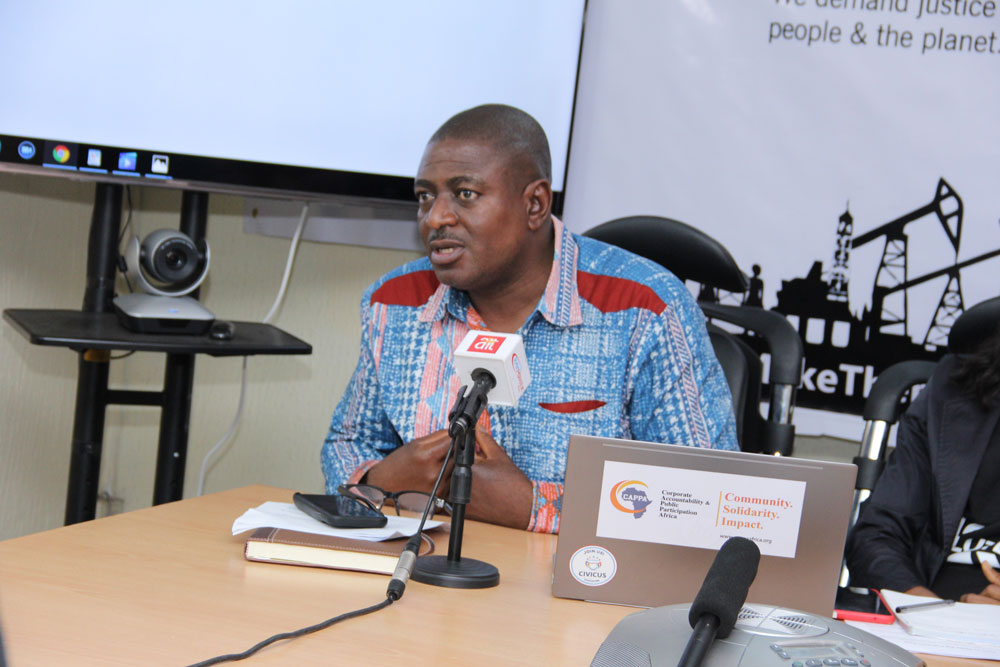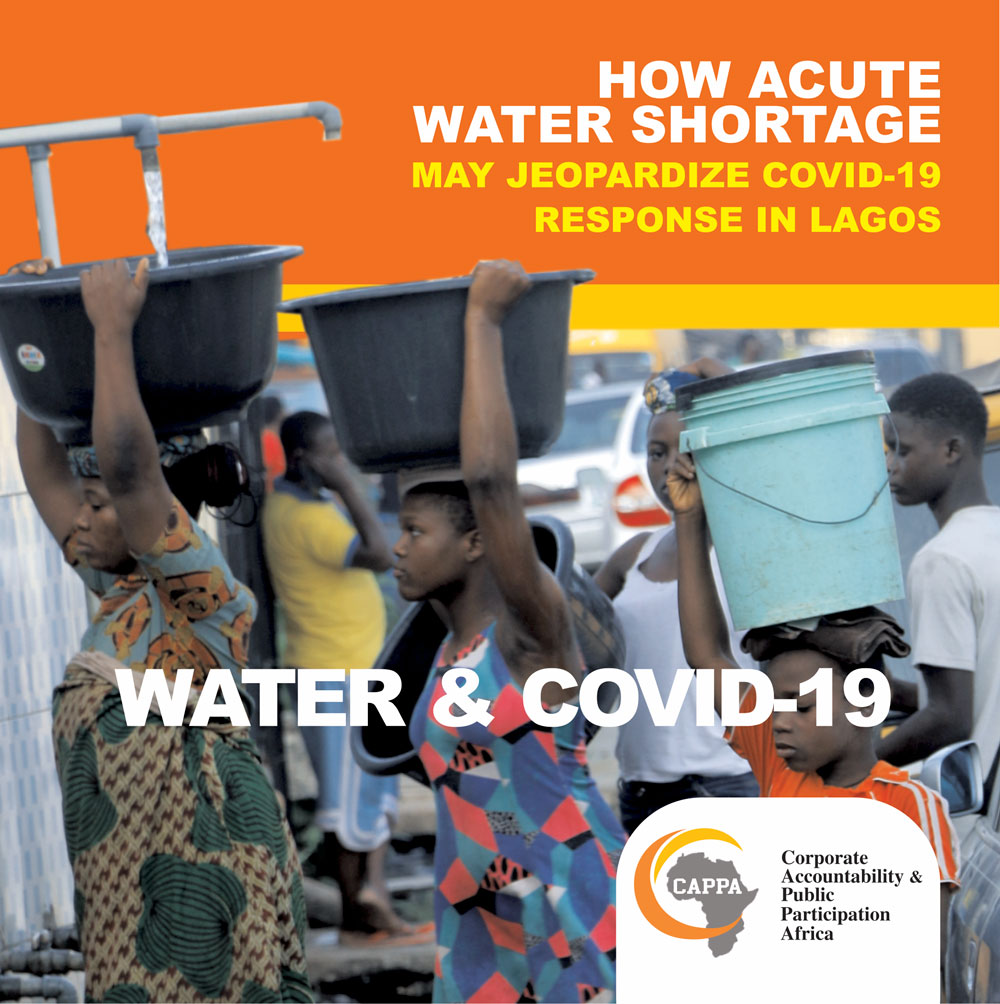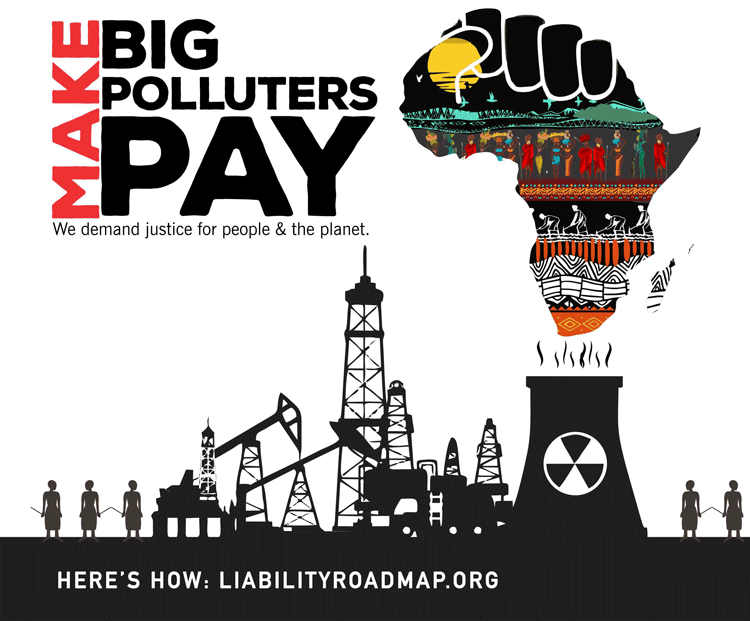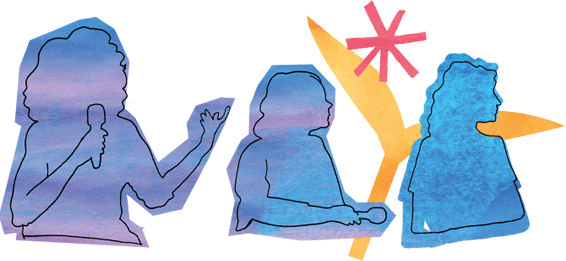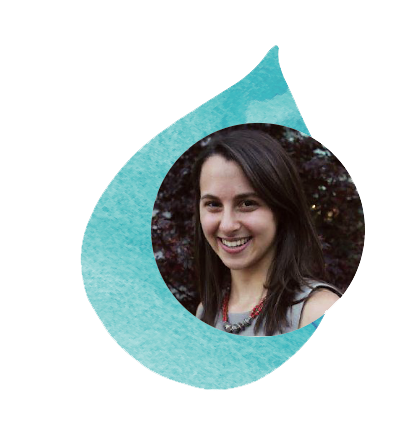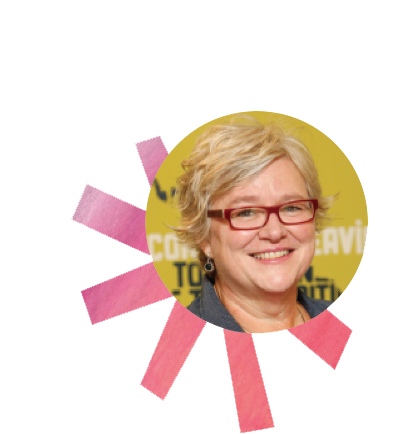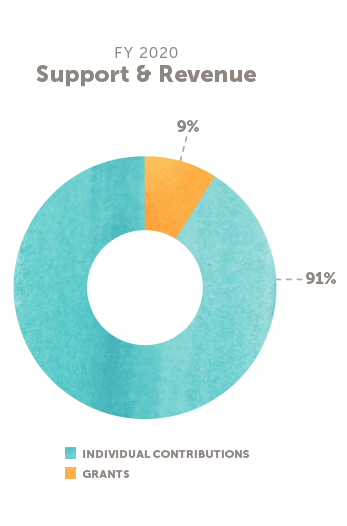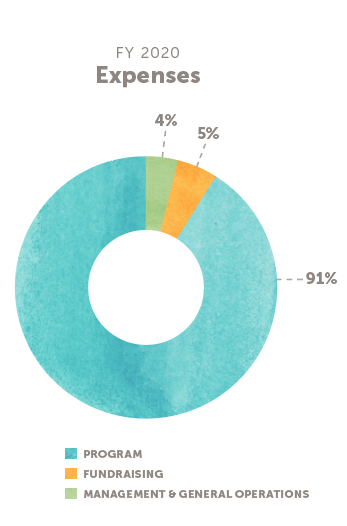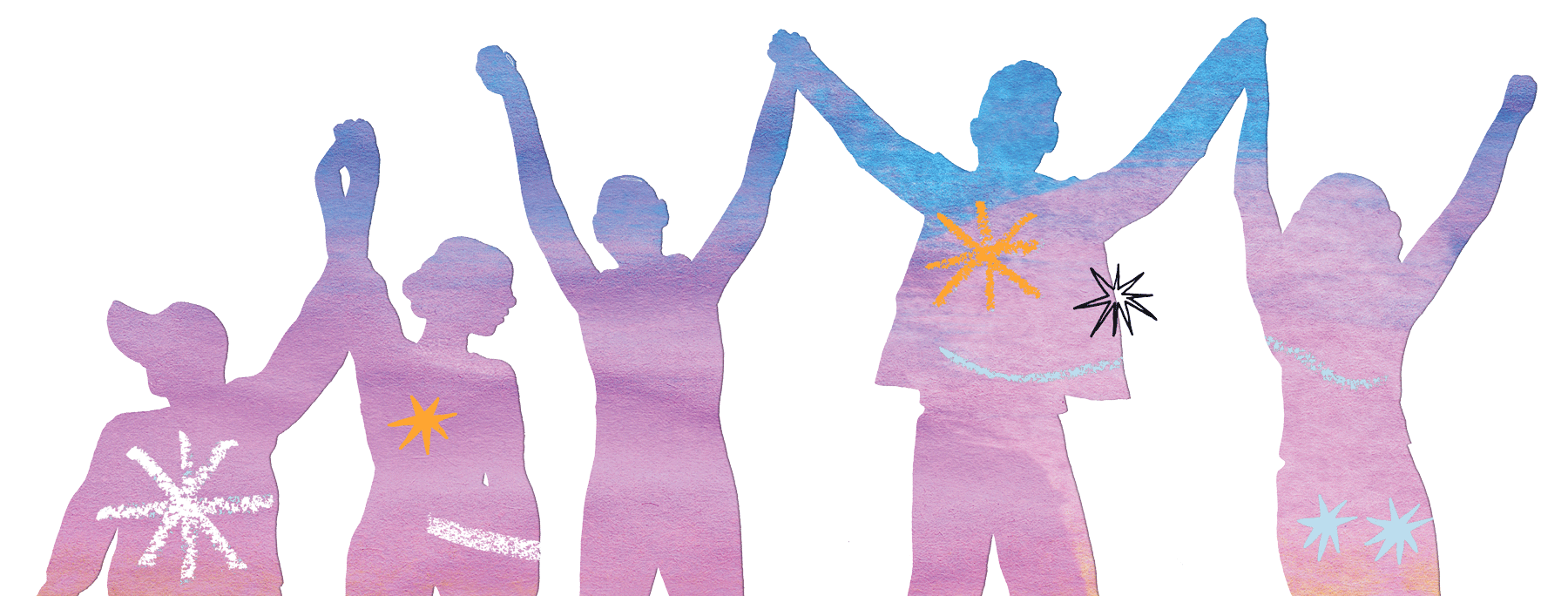You enable us to rise to the moment
Rapid response during the pandemic and uprisings for Black liberation.
In March, the world was turned upside down as the COVID-19 pandemic hit. In the U.S., Black and Indigenous people, people of color, service workers, and low-income communities were disproportionately affected. Your support enabled us to face this challenging moment with a mindset of abundance and creativity.
Thanks to members like you, we were able to adjust our campaign plans for maximum impact in these changed conditions. Throughout the spring and summer, we engaged in rapid and necessary campaigning in response to conditions created by the pandemic and attempts by corporations to exploit the crisis. And when people across the country followed the lead of Black organizers to demand systemic change, your support enabled us to respond with action once again.
Challenging water shutoffs and unaffordable service
Almost as soon as the pandemic reached the U.S., we began strategizing with our allies on where we all needed to focus our organizing power. We quickly identified that it was essential to stop shutoffs of water and other essential utility services in the short term, and to advance a long-term framework for water service affordability and debt forgiveness.
To deny people the ability to wash their hands, refrigerate food, or run home medical equipment is inhumane and dangerous, especially during a pandemic. And, like much else in the pandemic and otherwise, those who are most impacted by shutoffs and the ensuing economic crisis are Black and Indigenous communities and other communities of color.
The "No Shutoffs" coalition, whose members include Partnership for Southern Equity, Center for Biological Diversity, Food & Water Action, and dozens of local organizations, succeeded in moving many municipalities to temporarily stop shutoffs. As a coalition, we organized hundreds of thousands of people across the country to call on their elected officials to issue halts to shut offs and provide long-term relief. Engaged by virtual town halls and action briefings, email outreach, and more, many activists and members like you took action.
This kind of grassroots pressure moved congressional champions to put our demands front and center in their platforms for pandemic response. And these policymakers now have the backing of hundreds of thousands of people as they continue to go toe-to-toe with those who are opposing these necessary protections.
But we and our allies took this opportunity to ask: Why should people's access to clean water and other utilities ever be denied? Access to water is a fundamental human right and shouldn't hinge on the ability of people to pay their water service bills.
We recognized there was a need to form a coalition of environmental, community, national, and labor groups committed to challenging privatization, water affordability, and water quality concerns. So, together, we launched The People's Water Project. Through this coalition, we are advocating to address immediate concerns such as water affordability and privatization schemes, and we are advancing the WATER Act.
Exposing Philip Morris International's pandemic exploitation
It wasn't surprising, but was enraging that corporations sought to exploit the crisis of the pandemic. Tobacco giant Philip Morris International (PMI) was among the ranks of these unscrupulous corporations, seeking to profit from the pandemic with misinformation. Knowing that corporations would attempt all manner of abuse during this time, we diligently monitored suspicious actions.
We found that PMI and its front groups were attempting to position vaping as a way to stay safer in the time of COVID-19. Vaping products (also known as heat-not-burn or e-cigarettes) are the industry's latest attempt to push a nicotine product to addict people for life. With flavors and social media appeal, these products are targeted at youth, Black people and other people of color, and increasingly, people in the Global South.
We researched the doctors and bloggers who were issuing misinformation about vaping. It turns out they have ties to the Foundation for a Smoke-Free World—of which PMI is the sole funder—and other front groups pushing a pro-vape agenda amid the respiratory pandemic.
Your support enabled us to expose these connections in a hard-hitting article we secured in Bloomberg News.
And we were heartened when, a few weeks later, the secretariat of the global tobacco treaty, Dr. Adriana Blanco Marquizo, released a powerful statement that called out the industry's strategy. Dr. Blanco reminded governments that they can and should use Article 5.3 of the treaty—which our and our allies' organizing helped secure in the early 2000s—to protect public health from the vested interests of the industry.
Supporting the uprisings for Black liberation
As the pandemic continued, it became clear that Black people in the U.S were disproportionately contracting COVID-19 and dying from it. This tragedy laid bare the ways that systemic anti-Black racism threatens the lives and well-being of Black people—from environmental injustice to racism in the healthcare system and beyond.
When George Floyd was brutally murdered by police, Black people led the way in demanding systemic change. And many people of all races were activated to take up the call, join the protests, and take action in defense of Black lives.
The Movement for Black Lives, a national organization that has been organizing for systemic change for years, asked the progressive left to step up, support, and follow their leadership during the Juneteenth days of action. The demands for these days of action were: Defund the police. Invest in Black communities. Trump must resign.
Corporate Accountability supported this week of action by organizing members to get involved and donate to the Movement for Black Lives. We also provided support through media training, research, and text banking. And we amplified the Movement for Black Lives' demands and actions on our social media channels.
Following the Juneteenth days of action, activists and organizers pressured elected officials on local, state, and national levels to enact systemic solutions. Many city officials felt the pressure to make commitments around cutting police budgets and investing in services that support, rather than criminalize, Black communities.
For the most part, responses from elected officials were not enough. But we know the road to systemic change is long and not linear. And there can be no denying that Black organizers successfully launched an evolutionary leap forward toward a future where Black people thrive. Corporate Accountability will continue to organize to support the Movement for Black Lives and other Black allies toward that future.
Keeping our focus on our mission.
The social and economic structures we live under are not tenable. They have been created to benefit a small handful of people—mostly white men—and corporate power plays a significant role in both upholding and benefiting these structures. This spring, the cracks in these structures grew larger and more people began to see them.
Corporate Accountability's mission—to stop life-threatening abuses by transnational corporations—requires nothing short of transformative change. So we are ready for these times. And we are able to respond nimbly and effectively because the bulk of our funding comes from members like you.
We can only imagine that the future will continue to bring unprecedented upheavals. And we know we will be equipped to respond to them in partnership with you and our allies, keeping a steady focus on our mission, ready to mobilize people power, and building toward a future that supports life, justice, and the well-being of all.
